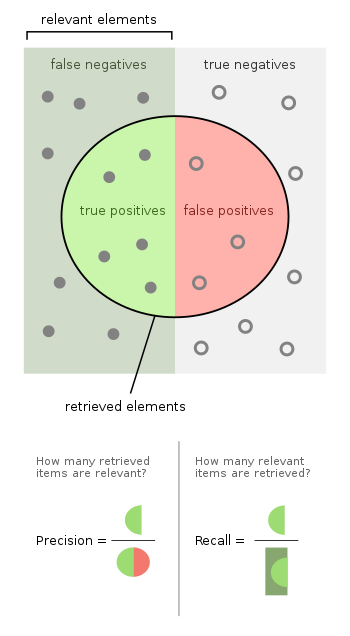


The precision is the rate of correct positive predictions. It is defined as the number of accurately predicted positives divided by the actual number of positives in the sample. Higher precision means that fewer positive events are missed.
The recall is the number of correct positive predictions divided by the total number of positives predicted. Higher recall means that fewer negative events pass through.
F-measure is the harmonic mean of Precision and Recall, which gives a single value for the performance of the filter.
The accuracy is probably the simplest measure of performance, although not the most useful. It is the number of correctly predicted events divided by the total number of events.
The specificity is the flip of the precision, so the rate of correct negative predictions. It is defined as the number of accurately predicted negatives divided by the actual number of negatives.
Past updates: